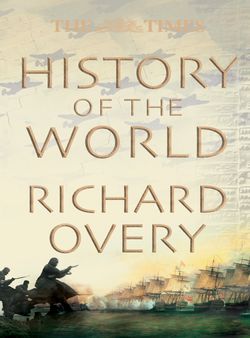Читать книгу The Times History of the World - Richard Overy - Страница 42
31 BC TO AD 235 THE HEIGHT OF ROMAN POWER
ОглавлениеAugustus, the first emperor, transformed the government of the Roman empire. He brought an end to internal conflicts and created a standing army to guard the empire’s frontiers and extend its power. As Roman culture and organization spread throughout the empire, it laid the foundations for the development of the Mediterranean world.
In 31 BC Octavian, the future emperor Augustus, was undisputed master of Rome. His popularity as adopted son of Julius Caesar and victor over Cleopatra and Mark Antony at the battle of Actium allowed him to rebuild the shattered Roman republic into a system of government capable of controlling a vast empire, reforms which were to bring Rome a new and intense surge of life and two and a half centuries of almost uninterrupted peace and prosperity.
Augustus’s reforms were far-reaching. He restored the prestige of the Senate, though not, in practice, its influence. He reorganized the army and, in 27 BC, took command of those parts of the empire where legions were stationed. From then on responsibility for the defence of the empire lay with the emperor alone. At the same time he took the religiously significant name Augustus, and stressed his relationship to the now deified Julius Caesar. Among his many priesthoods was that of Pontifex Maximus, chief priest, and from the time of Augustus onward the emperor became the focus of all Roman religious ritual.
In 19 BC Augustus was given the power to rule by decree, and although he continued to pay due respect to the Senate, whose members he needed to command the legions and to administer the provinces, his authority was now absolute. The vast wealth he had inherited and won (his defeat of Antony and Cleopatra left Egypt as his personal domain) was further increased by bequests from the rich throughout the empire. At his death his property was worth thousands of times as much as that of even the richest senator. That his heir should also inherit his position as head of the empire was inevitable.
In the event, Augustus had great difficulty in finding an heir, eventually settling on his stepson Tiberius (AD 14–37), who had been a successful military commander but took on the role of emperor with reluctance. Neither he nor his successors were able to maintain good relations with the Senate, and the failure of Nero (54–68) to prevent revolt in the provinces led to his enforced suicide and the end of the Julio-Claudian dynasty. After a year of civil war, Vespasian (69–79) restored order. He was succeeded by his sons, Titus (79–81) and Domitian (81–96). Though the latter was generally regarded as a cruel and probably insane tyrant, many of his imperial policies were adopted by his successors, especially Trajan (98–117), who began the practice of appearing before the Senate not in a toga but in the purple cloak and armour of a triumphant general. This was to become the uniform of the emperor for the next thousand years.
STABILITY AND STRIFE
Domitian’s assassination was followed by nearly a century of stability as emperors without sons of their own chose their successors from the Senate. Civil war returned in 193, from which Septimius Severus (193–211) emerged victorious. He ruled with his sons Caracalla (198–217) and Geta (209–12), setting a pattern that was to be followed in the following centuries. Caracalla was murdered, and after him came a series of short-lived emperors, of whom Severus Alexander (222–35) was the last who could claim a dynastic link to his predecessors.
THE NATURE OF ROME
The emperor’s figure was central to the empire: everywhere statues and coins were constant reminders of his presence. In the former Hellenistic kingdoms the kings had been the objects of religious worship, a practice which continued with the cult of the emperors. In the western provinces, temples and altars dedicated to the emperor became focuses of Romanization.
The early 2nd century saw important cultural developments: Greek and Latin literature flourished; and the distinction between Italy and the provinces dissolved as rich men from all over the empire were admitted to the Senate, with some, such as Trajan and Hadrian (117–38), even becoming emperor. For the poor there were fewer benefits, and differences in the rights and privileges of rich and poor grew. By the time Caracalla extended Roman citizenship throughout the empire in AD 212, it gave little advantage to the newly enfranchised citizens. Later in the 2nd century, pressures grew on the frontiers. Marcus Aurelius (161–80) spent much of his reign at war with barbarian invaders, and his successors faced threats both from the north, and, after 224, from the rejuvenated Persian empire under the Sasanids.
